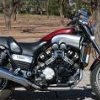Inverter Vs Standard Air Conditioners
-
Recently Browsing 0 members
- No registered users viewing this page.
-
Topics
-
-
Popular Contributors
-
-
Latest posts...
-
1
UK Strike Showdown: Doctors and Streeting Set for Talks Reboot
The figures are accurate; the doctors are paid less in real terms than they were in 2008. It is still incredibly stupid and selfish to go on strike. -
8
Emirates Airlines stopover time
MCT at DXB intl-intl is 60 minutes. You'll be fine, and protected, as they have plenty of DXB-LHR flights available for rebooking. -
29
Trump-Epstein Breakup Due to Employee Poaching
Trump is flailing at this point and he is very very scared, he knows how guilty he is, he knows how close his friendship with Epstein was, he remembers all the mischief they made together, and all the women they abused, and there's no refuting a very close friendship that lasted from 1987 to at least 2004. The problem with lying all the time is that sometimes you're going to get caught out, because you don't always remember each and every lie. -
11
Accident Motorcyclist Killed Instantly in Collision with Lorry on Sukhumvit Road
They scare me witless.....always slow down, sit up and watch, watch, watch. -
17
Report Australian Rocket Deflates: Historic Launch Crashes in 14 Seconds
...How Much Did It Cost The Aussie Taxpayers (?)... -
71
Problems after Sleep on New Desktop.
You can get a free VPN from Proton VPN. Its fast and works well. Reduced servers of course, but it all comes down to what you need.
-
-
Popular in The Pub


.thumb.jpg.d9f3e54432a0ae65f4d5beb0d2d122ce.jpg)







Recommended Posts
Create an account or sign in to comment
You need to be a member in order to leave a comment
Create an account
Sign up for a new account in our community. It's easy!
Register a new accountSign in
Already have an account? Sign in here.
Sign In Now